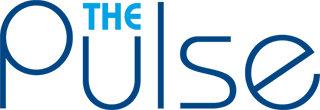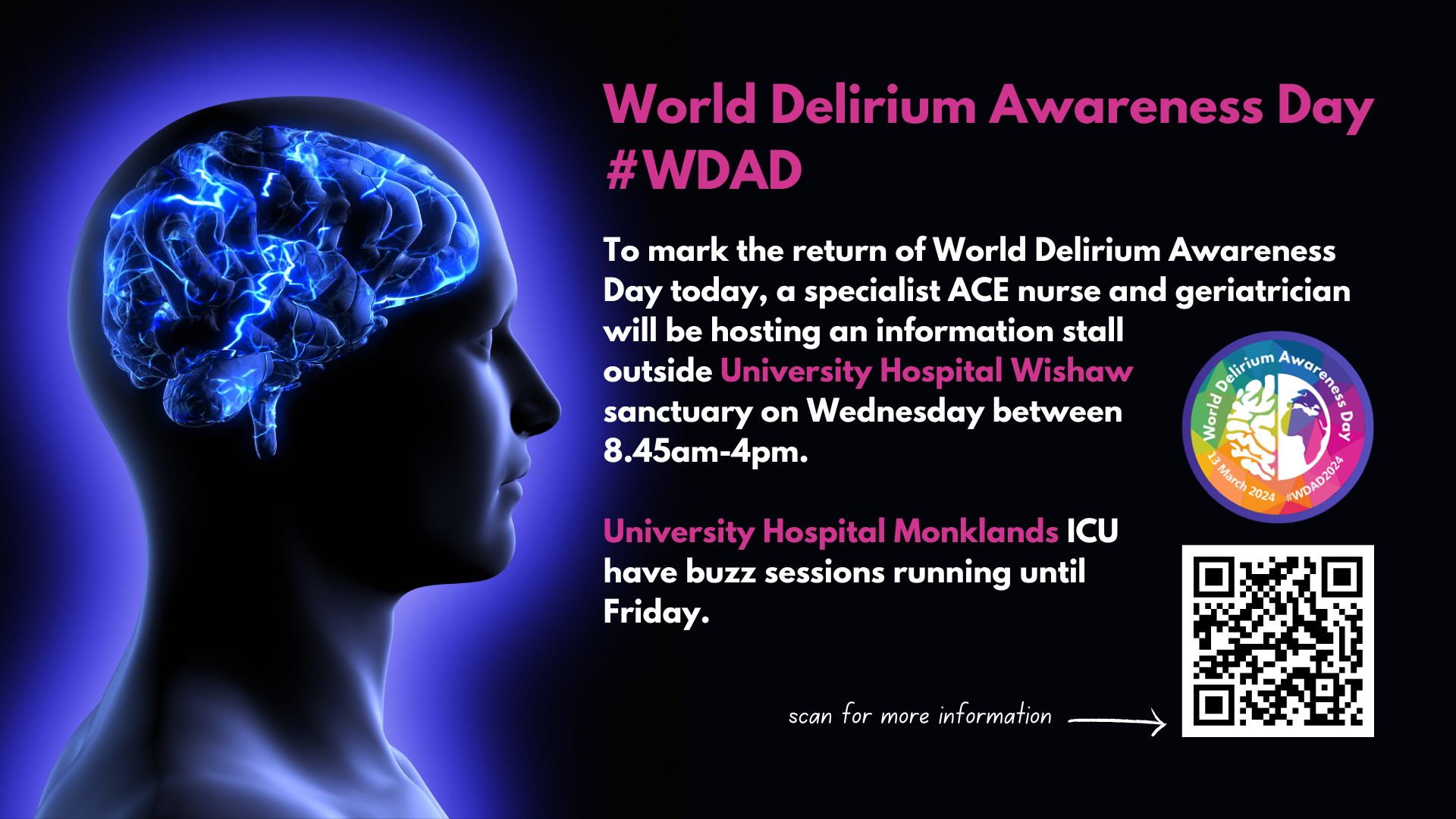To mark the return of World Delirium Awareness Day a number of staff awareness activities are taking place.
An acute care of the elderly (ACE) nurse and geriatrician will be hosting an information stall outside University Hospital Wishaw sanctuary on Wednesday between 08.45am-4pm. In addition, University Hospital Monklands ICU has buzz sessions running until this Friday.
An acute state of confusion, delirium is a rapid change in mental functioning which can occur over hours or days.
In hospitals, up to 30% of people on an acute medical ward will have delirium and as many as 50% of people with dementia will experience it. Research shows up to 50% of people having surgery can develop delirium and that rises to 75% of people admitted to ITU.
Some of the common causes of delirium are:
- Dehydration
- Emotional distress
- Fever
- Infection
- Certain medications
- Sleep deprivation
- Environmental changes
- Prolonged mechanical ventilation
- Pain
- Urinary retention
- Constipation
- Anaesthetic
Hazel Gilmour, NMAHP frailty consultant, Frailty Network, University Health & Social Care North Lanarkshire, said: “Delirium is a serious acute medical condition.
“It can be recognised by a variety of symptoms including increased or new confusion, incoherent speech, hallucinations or drowsiness, and reduced consciousness. The symptoms of delirium may fluctuate throughout the day, and at times there may be moments of clarity.
“It is very distressing for patients and their families/carers and keeping them involved and updated is essential. Involving families/carers to understand the patient’s cognitive baseline can help detect a delirium early as they’re often the first people to recognise a change in a patient’s cognition.
Jane Mimnaugh, Alzheimer Scotland Dementia Nurse Consultant and Old Age Psychiatry, University Health & Social Care North Lanarkshire, said: “There is evidence to suggest we can mitigate against some causes of delirium.
“It’s important to be aware that all healthcare professionals have a responsibility to detect delirium. That’s why it’s so important we all embrace the World Delirium Awareness Day and make sure every one of us play our part in keeping our patients safe through quick and effective detection.
“It may co-exist with dementia meaning it can be difficult to recognise in people with dementia due to the similar symptoms.
“The 4AT detection tool is a simple and easy delirium tool designed for easy and effective use. It does not require any specialist training meaning it truly can be deployed by all staff.”
For further details on the University Hospital Monklands buzz sessions, please contact clinical nurse educator Marie McCormack.




